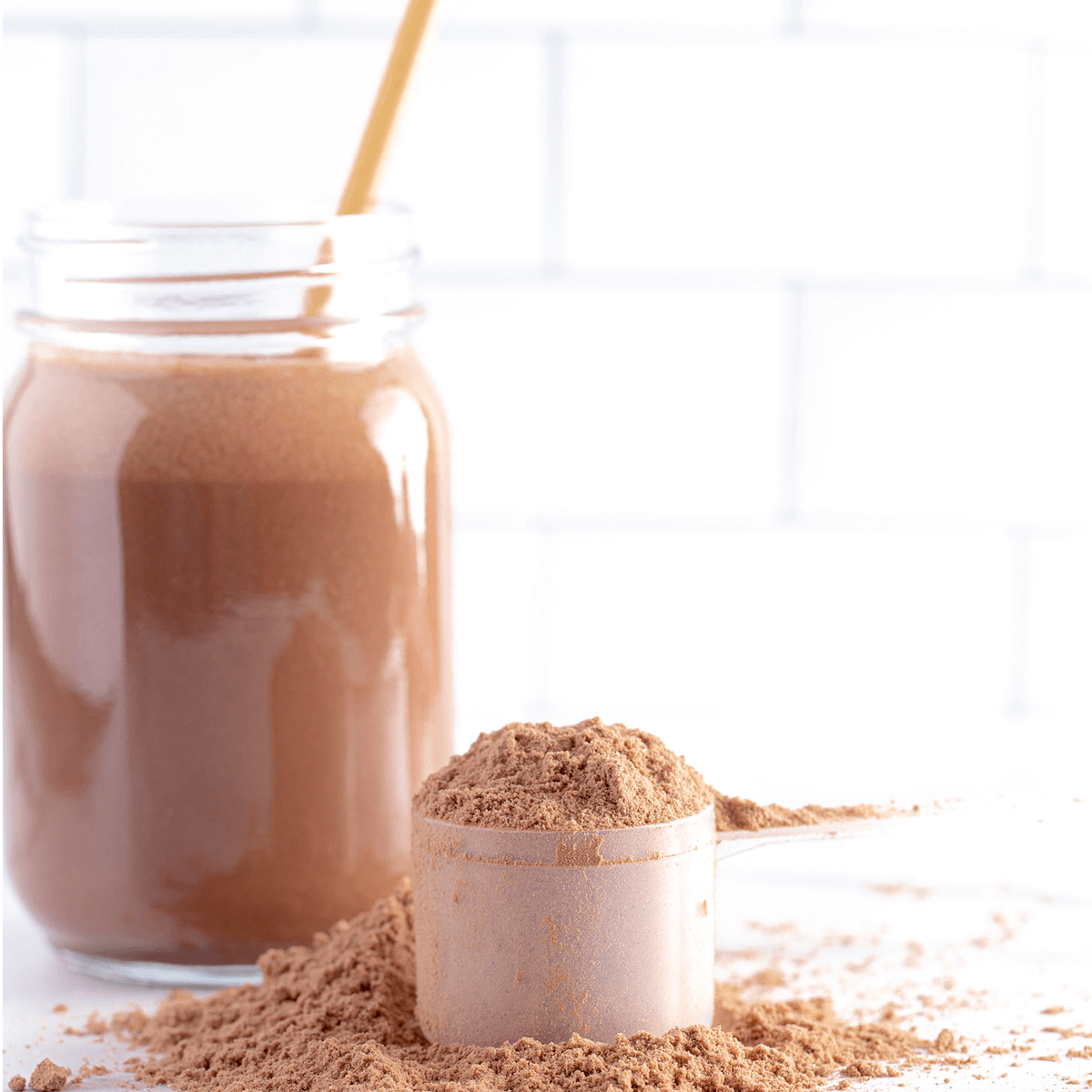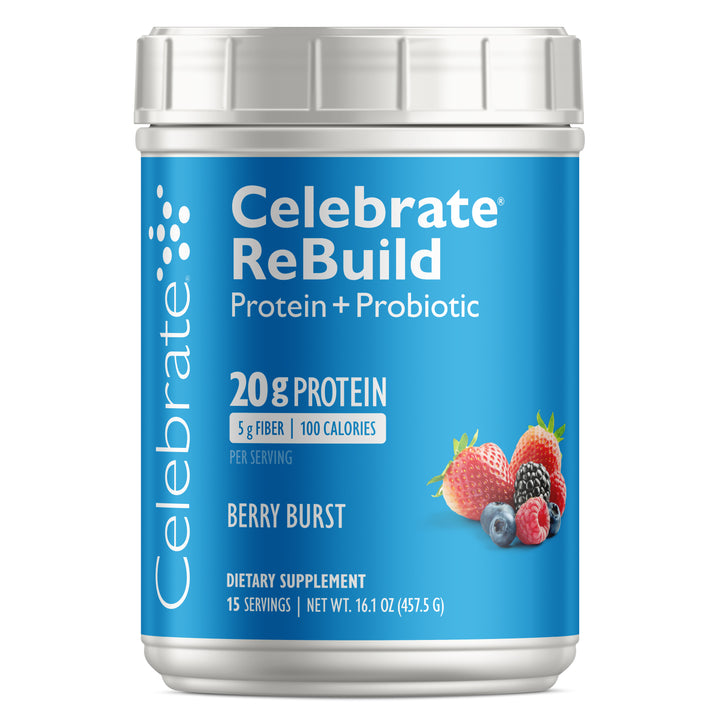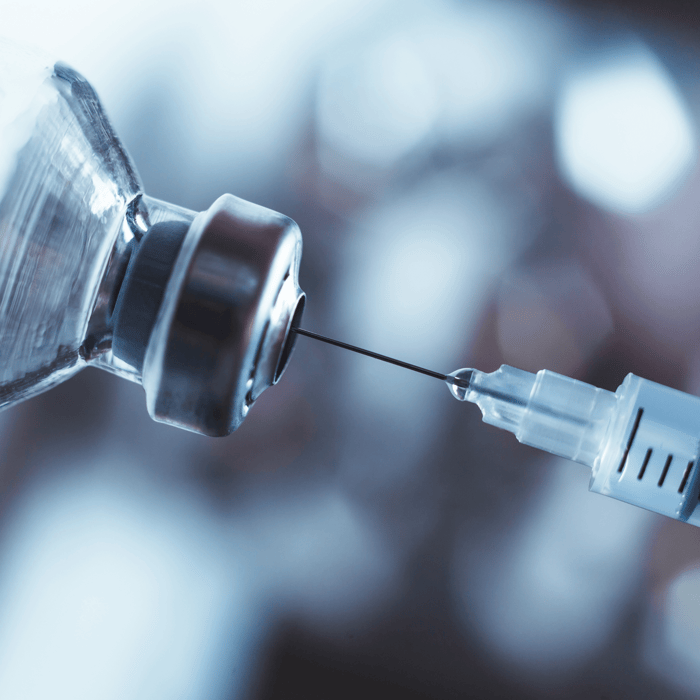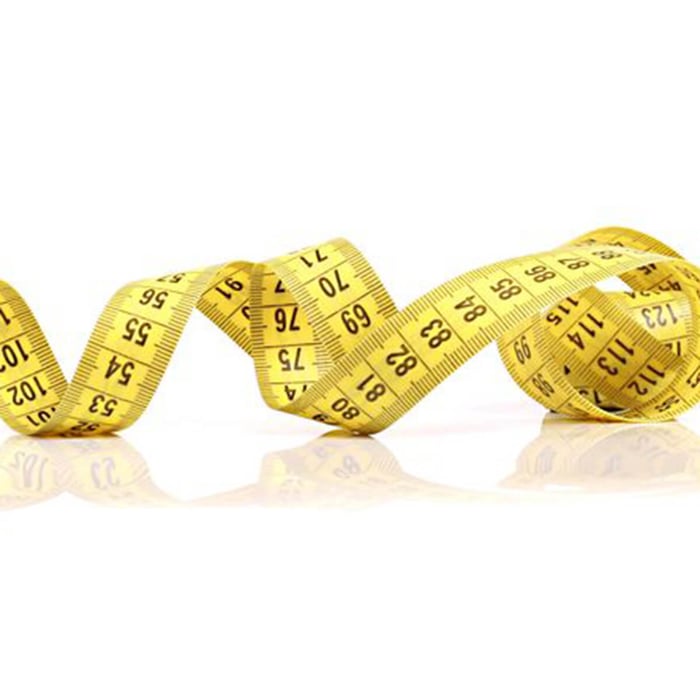Meal Replacements vs Protein Supplements
Lifestyle
August 8th, 2019

Many bariatric (surgical and non-surgical) patients choose protein supplements to achieve their daily recommended protein intake, but what is the difference between a meal replacement and a protein supplement? Is one better than the other, especially for bariatric surgery patients?
What is a Meal Replacement?
The term "meal replacement" is not defined by the Food and Drug Administration (FDA), but generally refers to a calorie-controlled, pre-packaged product in the form of a bar or a beverage (ready-to-drink or powder) that is used to replace a meal. Meal replacements usually provide around 200-250 calories per serving (although some may be as high as 400 calories per serving) and are fortified with more than 20 vitamins and minerals (at a "good" or "excellent source" level), healthy carbs (including fiber), and healthy fats. The inclusion of fiber, in particular, is thought to decrease the incidence of low blood sugar, low blood pressure, constipation and/or diarrhea. The inclusion of vitamins and minerals provides essential nutrients that would generally be found in a meal from "grocery-based food."
Meal replacements are intended to be more filling and contain more calories than a protein supplement. Even though meal replacements have more calories than protein supplements, they tend to be lower in calories than an actual meal, which can assist with weight loss. Meal replacements may have only 10 grams of protein per serving (for general health), while some meal replacements may contain higher amounts of protein (especially those used for weight loss programs as protein helps you to feel full and assists with maintaining lean body mass during weight loss).
Initially, meal replacements were used by the elderly or ill individuals requiring extra nutrition, but now they are also marketed for healthy adults. Many products are presented as a convenient source of balanced nutrition for the specific purpose of weight loss, maintenance, or gain (depending upon the formulation of the specific meal replacement). They are also marketed as a great, easy way to help individuals that are prone to missing meals due to a meal replacement’s ability to be consumed immediately with minimal to no preparation.
One should not solely rely on meal replacements for an extended period of time without consulting their physician because of the decreased intake of “real food” like fruits and vegetables. Solely relying on meal replacements should be combined with medical monitoring by a physician as one may not consume enough calories or nutrients depending upon the formulation of the meal replacement. However, occasional meal replacement usage may provide a convenient, healthier alternative to skipping meals and making healthier choices while on the go.
What is a Protein Supplement?
A protein supplement is part of a class of dietary supplements. Dietary supplements are defined as a product (other than tobacco) that (1) contains specified dietary ingredients and is intended to supplement the diet, (2) is intended for ingestion in pill, capsule, tablet, powder, or liquid form, (3) is labeled as a dietary supplement, and (4) is not represented for use as a conventional food or as the sole item of a meal or diet. Basically, a protein supplement is used to supplement the diet with extra protein.
Protein supplements typically provide about 100-120 calories per serving with protein amounts varying by brand (many protein supplements contain about 20 grams of protein per serving). Carbohydrate counts vary by brand for protein supplements, but are generally less than 5 grams per serving, whereas meal replacements will have higher carbohydrate amounts and part of the carbohydrates are fiber (especially those designed for a weight loss program). Protein supplements are typically low in fat, while the fat content of meal replacements varies by product. Protein shakes generally do not contain added vitamins and minerals other than those provided by the protein source (e.g., if a protein supplement is made from whey protein, which is derived from dairy, then it will also contain calcium).
When Should I Use a Meal Replacement? A Protein Supplement?
Both meal replacements and protein supplements are great products. However, it is very important to make sure you are using the right product for the correct situation. The following guide should help you make the correct decision. However, if you have specific questions, please seek the advice of your healthcare team.
Optimal Use of Meal Replacements:
- Anytime you want to replace a meal.
- Anytime that you would normally miss a meal.
- When recommended by a physician as part of a weight loss program that is being medically monitored.
Optimal Use of Protein Supplements:
- Anytime you need to increase total protein intake for the day when you are not going to achieve the recommended amount from “real food.”
- Anytime prior to an exercise session if it has been a while since you last ate and need additional energy to get through the exercise session.
- Anytime after an exercise session to replenish protein stores to the muscles after an intense exercise session.
- Ideal replenishment following exercise sessions includes both protein and carbohydrates.
- Not all individuals need to replenish after an exercise session (talk to your healthcare team about what is right for you).
- Anytime you need a quick and easy snack.
For further information regarding when a protein supplement or meal replacement might be right for you, speak to your healthcare provider.
Celebrate® ReBuild Probiotic Protein Powder

$29.99
ReBuild Protein Plus Probiotic Powder promotes a well-balanced gut microbiome and muscle protein maintenance. Each shake offers 20 g of whey protein isolate, 1 Billion CFU probiotics, prebiotics, and 4-6 g of fiber. With a low sugar content of 0-1… read more
High Protein Meal Replacement Powder

$34.99
Our high protein meal replacement powders utilize a blend of high-quality whey protein isolate and soy protein isolate and boasts a PDCAA score of 100 (out of 100); making our meal replacement shake a complete protein. Each protein shake contains… read more
&



